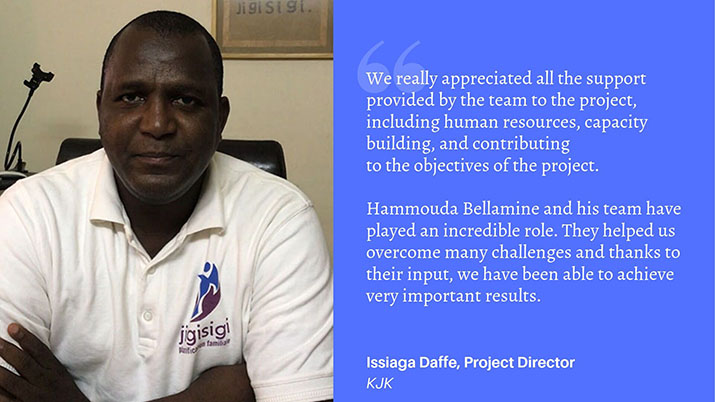Building sustainable change in Mali through the Keneya Jemu Kan project
Building sustainable change in Mali through the Keneya Jemu Kan project
![[Members of the KJK team (from left to right: Mariame Sene Diallo, Hawa Coulibaly Kone, Hammouda Bellamine, Aicha Diarra and Justine Dembele)]](https://msh.org/wp-content/uploads/2019/10/photo_de_groupe.715px.jpg)
Led by Johns Hopkins University’s Center for Communication Programs and in partnership with Management Sciences for Health, the Palladium Group, and a number of local implementing partners in Mali, the USAID-funded Keneya Jemu Kan (KJK) project (communication and health prevention) aims to promote key healthy behaviors and increase the demand for and use of high-impact health services and commodities. The project includes three key areas of implementation: social and behavior change communication, social marketing, and building the institutional capacities of partners.
As the lead for this third area, MSH works to build the capacities of selected national and local organizations in leadership, management, and governance so that they can contribute to improving women’s access to and use of high-impact services. The following testimonies from key project stakeholders provide important examples of the results and impact of MSH’s technical contribution.
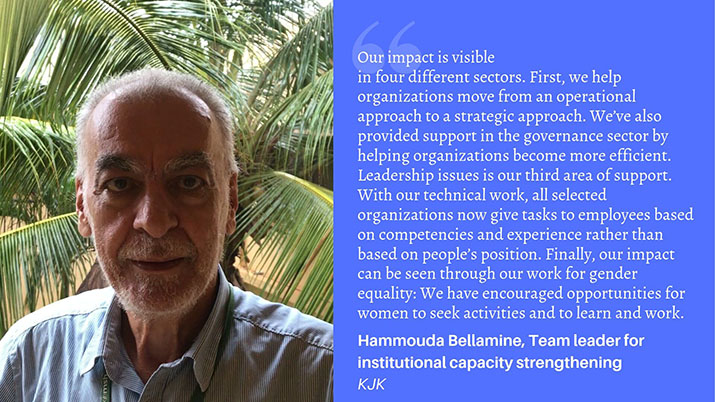
PROGRES, an institutional capacity assessment tool
From the beginning of the project, MSH worked with all partners to apply PROGRES, an MSH tool designed to help civil society organizations and governments identify and prioritize areas for capacity building to enhance their sustainability and resilience. Using this tool, MSH facilitated a process for local project partners to assess themselves, reflect on the findings, and create a practical plan to make improvements.
As partners began to implement their improvement plans, MSH provided on-site strategic coaching and mentoring to help staff access best practices and global learning, monitor their progress, reflect on their efforts, and adapt based on unanticipated issues. Through KJK, 216 members of the leadership team and staff from 10 public- and NGO-sector partner organizations have received support from MSH to use the PROGRES tool to conduct participatory capacity assessments.
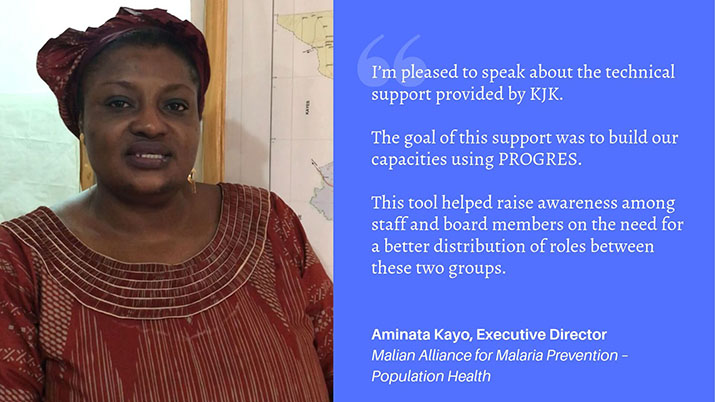
Creating a positive change within an organization with LDP+
The Leadership Development Program Plus (LDP+) is a multistep process designed to foster change in how individuals and organizations experience and understand leadership, management, and governance.
Throughout this process, participants work in teams to teach quality improvement skills to their colleagues and inspire them to adopt these skills to overcome challenges in priority public health areas.
Over the course of the KJK project, 43 leadership team and staff members from seven NGOs and the Ministry of Health’s National Center for Information, Education and Communication for Health (Centre national d’information, d’éducation et de communication pour la santé (CNIECS) engaged in the LDP+ process to build their leadership and capacity.
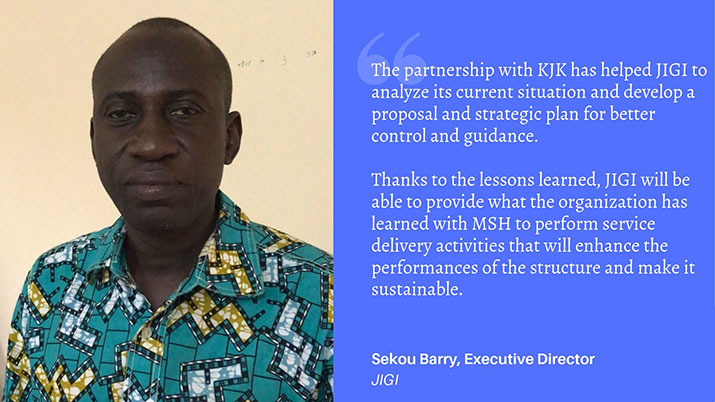
Helping organizations better plan their work
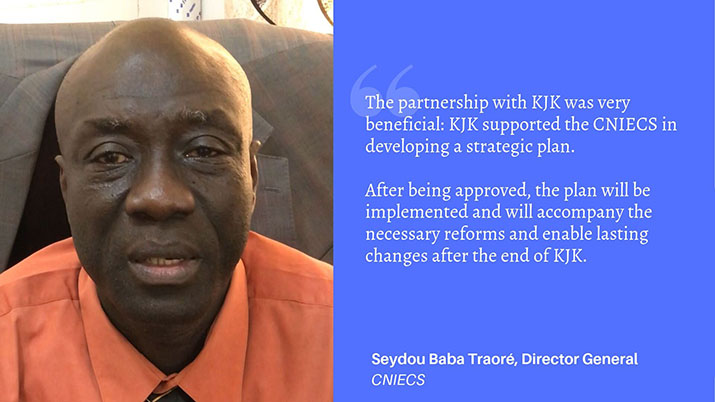
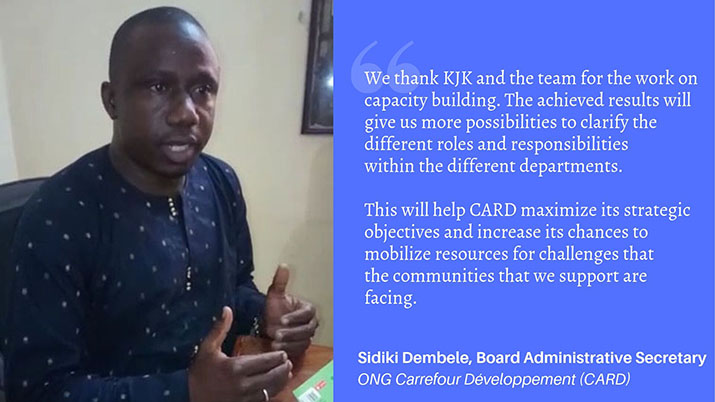
A first step for future performance improvements
As demonstrated in the examples above, MSH prioritized the transfer of ownership of the capacity building process to local partners by training facilitators from each organization on every step of the process and increasingly engaging them as co-facilitators in activities. By taking this approach, partners are now empowered to take the lead in ensuring lasting change and have demonstrated more confidence in themselves and their capacity to continue improving performance within their organization.
